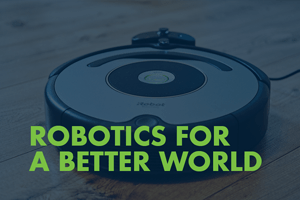By 2030, the global plant-based food market will have more than doubled, opening up tremendous growth potential for companies in the food industry. With conscious consumers leading the charge and policymakers at all levels rallying behind this movement. The Green Deal and its Farm to Fork strategy further scale the significance of this shift towards plant-based foods, and it’s also showcased in initiatives like Vlaanderen Circulair, developing an action plan for circular food chains. What does it take to be part of this promising movement? Continue reading to find out how you can start shaping the future of food!

Just like Rome wasn’t built in a day, you can’t expand your product portfolio or transition to plant-based food overnight. You have to adopt a solid innovation approach and system to leverage opportunities from the start. By preparing your facilities and teams you can pinpoint and address the most pressing challenges:
Understanding complex product development
Developing plant-based products can be very complex, especially if you’re trying to resemble animal-based products. They need to be similar in taste, odor, texture, appearance including color and cooking behavior, but also need to fit within the budgetary needs. To create recipes that meet consumer demands, you may need to invest in research and development, skill development, new systems and accelerated learning and exploration.
Accessing new technologies and innovations
Plant-based food has existed since before humankind, so the best way to turn it into a profitable business is by setting yourself apart from the competition through breakthrough innovation. From cultivating novel plant species and improving packaging for shelf life, to food platforms and personalized nutrition, setting up these internal R&D capabilities can become expensive really quickly. That’s where having a solid open innovation ecosystem can give you a competitive edge. By collaborating with researchers, food scientists, chefs, nutritionists, farmers and consumers, you can access a broader range of resources, ideas and solutions to accelerate your innovation processes.
Adjusting production infrastructure
Building the necessary production capacity or replacing the existing equipment for plant-based food manufacturing, requires a long-term vision and approach. It requires different production assets and can be a driver to re-design the entire process and ecosystem. On the one hand, population growth, climate change and conflicts increase the pressing need for more sustainable food production systems and products. Disruptive technologies and digitalization can help improve the use of land, water, fertilizers and transportation and reduce its environmental impact. On the other hand, you may encounter new processing challenges to launch a successful operation at scale. Because these products contain dozens of ingredients with physical properties that vary by moisture, density, particle size and stability, optimal equipment configuration is crucial for efficient processing, consistent quality and scale mixing.
Fast-tracking consumer acceptance
More often than not, consumer adoption is the key bottleneck to innovation. Even if you reach new customers by extending your product portfolio, it’s important to also get your current customers on board. Since these products are new, it can be difficult to position them in the market so they are inspired to try them. Design research and behavior engineering can help you recognize rejection drivers, such as perceptual and cognitive biases. As an example, Fogg’s Behavior model is a smart framework to review touch points and check what can be done to achieve a better adoption.
Questioning the ‘motivation’, ‘ability’ and inventing some triggers will help you to evoke a specific action. Plant-based ‘fake’ meat is a clear example of such an action.
Similar research can be used to assess how consumers value the different characteristics of products and business models, so they can be positioned and priced accordingly.
Enabling new business and customer engagement models
Plant-based foods allow you to completely re-envision and redesign how consumers interact with your products. This can range from traditional packaged products bought in-store to at-home dispensers and subscription models that, for example, turn dry powders into various structures and tastes. But it could even mean new markets, capitalizing on waste streams and much more. Such disruptive and long-term innovation exercises require an integrated approach, taking into account the end-user, company capabilities, company strategy and multiple stakeholders. Early verification and validation of these ideas will help to steer and select the most valuable ideas and concepts.
In conclusion, the future of plant-based food presents significant growth opportunities, but requires a solid and holistic innovation approach. This includes addressing challenges such as complex product development, accessing new technologies through open innovation ecosystems, adjusting production infrastructure, fast-tracking consumer acceptance, and enabling new business and customer engagement models. By investing in R&D, collaborating with external resources, understanding consumer motivations, and taking an integrated approach, companies can position themselves for success in the rapidly growing plant-based food market.
The time to act is now, and Verhaert is here to help you on this exciting journey towards a more sustainable future. Let’s make IMPACT together!




